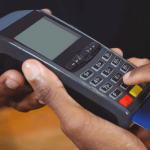The number of Point of Sale (PoS) machines deployed by merchants and individuals in Nigeria rose to 3.04 million as of July 2024, according to the latest data from the Nigeria Inter-Bank Settlement System (NIBSS). This marks a 32% year-on-year increase from 2.3 million terminals in July 2023, with 744,533 new PoS terminals added between August 2023 and July 2024.
Despite this growth, NIBSS reported that the number of deployed terminals still lags behind the total registered machines. As of July 2024, 4.06 million PoS machines had been registered, leaving over 1.02 million either inactive or not yet deployed.
The rise in PoS deployment has been mirrored by a surge in cashless transactions across the country. PoS transaction value reached N1.01 trillion in July 2024, up from N930.76 billion in June 2024 and N923.37 billion in July 2023. This trend reflects Nigeria’s growing shift toward electronic payments, especially after the cash scarcity of early 2023, when PoS transaction value peaked at N1.15 trillion in March.
Several factors are driving this growth, including rapid adoption by merchants and the use of PoS agents to bridge the gap left by limited Automated Teller Machines (ATMs). Many Nigerians now rely on PoS agents for cash withdrawals and payments, further boosting the system’s expansion.
In response to the increasing role of electronic transactions, the Central Bank of Nigeria (CBN) recently issued new guidelines to Payment Service Providers (PSPs) for better monitoring and routing of PoS transactions. The directive, introduced on September 11, 2024, is part of the CBN’s effort to diversify the Payment Terminal Service Aggregator (PTSA) structure, which a single aggregator previously managed.
Additionally, the Corporate Affairs Commission (CAC) has mandated the registration of PoS operators to curb “unwholesome activities.” Although the registration deadline has passed, the CAC is now taking steps to shut down unregistered PoS businesses.
This growing PoS ecosystem not only reflects a shift toward digital payments in Nigeria but also highlights the role of PoS in ensuring financial inclusion and expanding access to banking services in both urban and rural areas across Africa.










